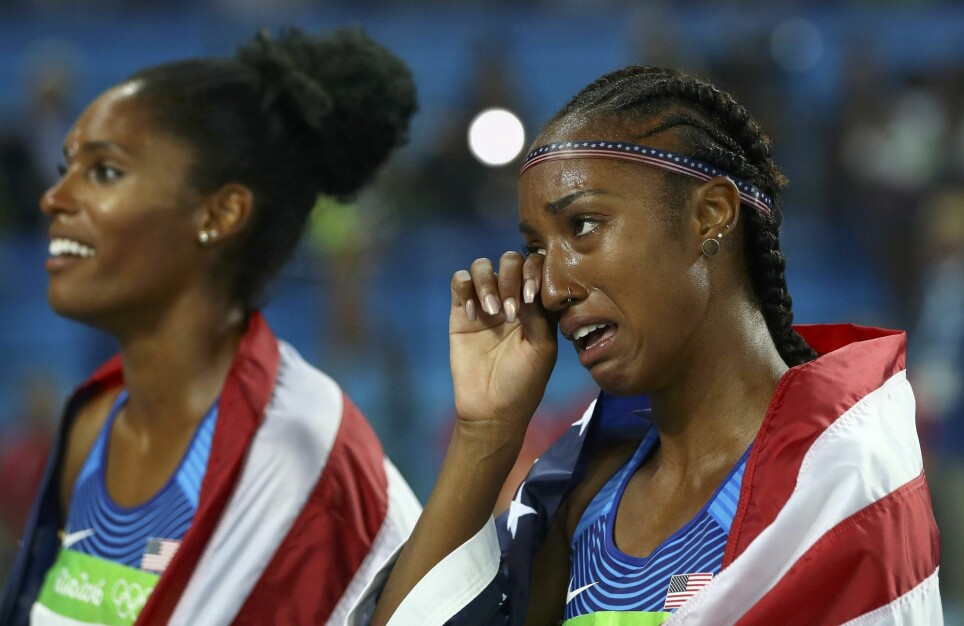Share your science:

Who cries more in the Olympics?
SHARE YOUR SCIENCE: Our results suggest that emotional tears are not only a biological feature that relate to gender or age, but also a cultural phenomenon.
Crying is one our basic human expressions. It plays an important physiological role as a regulator of emotions. Many studies have found that people reported feeling better after crying.
This could be because tears release endorphins and oxytocin, hormones that are useful for pain relief and improvement of mood, or because tears can help people connect to other people and receive empathy and attachment.
Is emotional crying based on culture?
150 years ago, Darwin hypothesized that emotional crying is a cultural phenomenon. However, it is very difficult to test this hypothesis for two reasons. The first is that crying might not always be an emotion that people like to report to others. The second is that in order to study crying, it is essential to have highly emotional elicitors that are not always feasible in laboratory settings.
In a recent study, me and Andrew Musau from Molde University College overcame these obstacles. We utilized a unique cross-country dataset of highly professional individuals who experienced strong and real positive emotions driven by winning a gold Olympic medal, which is probably the peak event of each athlete’s career.
Cried more at home
More specifically, we observed gold medalists of all 450 individual events at the 2012 and 2016 Summer Olympic Games at the end of the respective competitions and during the medal ceremonies.
In line with many previous studies, we found that women cry more than men, and that older people of both genders cry more. Interestingly, we also found a positive relationship between winning a medal when competing in a home country and the probability of crying.
This could be explained by the fact that athletes who compete at home are subject to increased pressure. Thus, winning after extra pressure may be even more emotional.
Men from egalitarian societies cry more
More intriguingly, we found that men from more gender-empowered societies, proxied by the share of women participating in the labor force, are more likely to cry than men from societies with less gender empowerment.
A possible explanation for this relationship is that, given that tears are more linked to women, the prevalence of women in working place, where men and women spend a large share of their working day, may shape behavior.
For example, there is an inverse relationship between the magnitude of price bubbles and the frequency of female traders in the market, who are known to be more risk-averse than men. Thus, a possible explanation for the collapse of the housing bubble in 2008 was that females only accounted for 10 percent of the traders on Wall Street.
Conflicted countries
Another intriguing relationship is between the probability of crying and religious fractionalization of the athlete’s home country. Given that religious fractionalization correlate with civil wars, whose effects include long-term physical and psychological damage, our results could be explained by reduced ability to recognize and express different emotions.
Another explanation is that the higher the religious fractionalization of a country, the lower the level of patriotism, which may be another reason for lower emotions after winning an Olympic gold medal.
Overall, our results suggest that emotional tears are not only a biological feature that relate to gender or age, but also a cultural phenomenon.
Read the study:
Alex Krumer & Andrew Musau, "Golden tears: A cross-country study of crying in the Olympics," preprint, Molde University College.
Share your science or have an opinion in the Researchers' zone
The ScienceNorway Researchers' zone consists of opinions, blogs and popular science pieces written by researchers and scientists from or based in Norway.
Want to contribute? Send us an email!





























